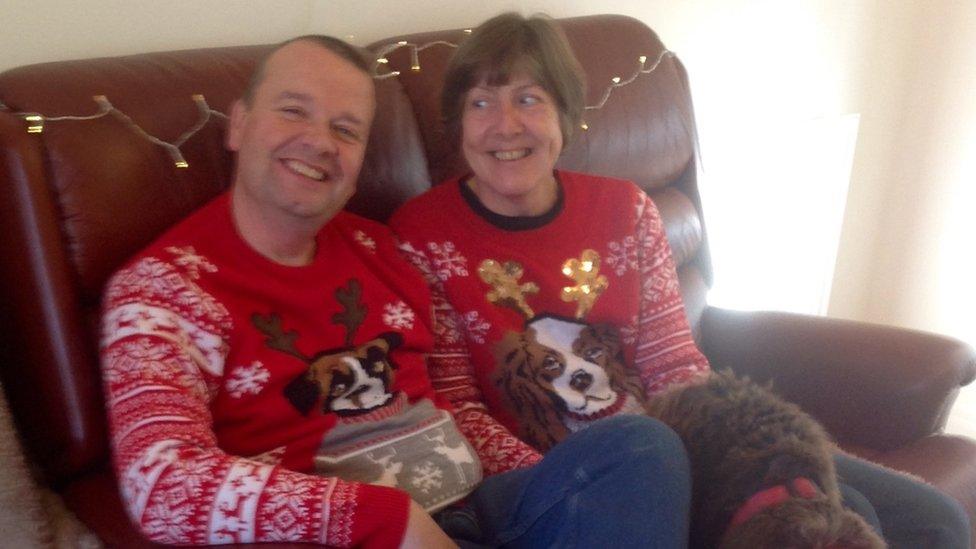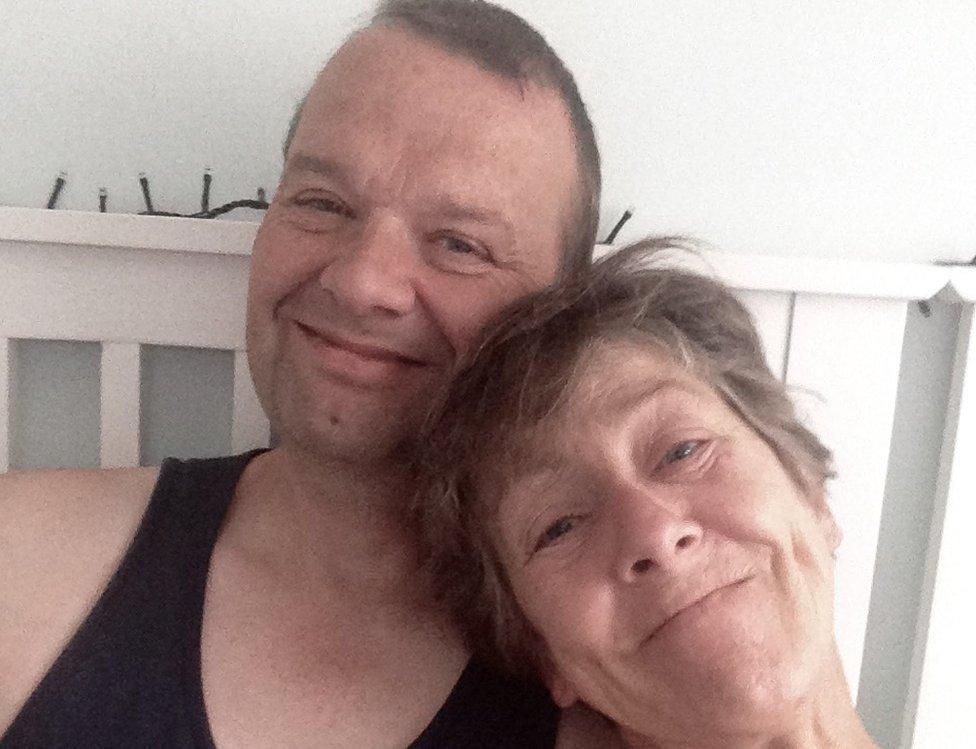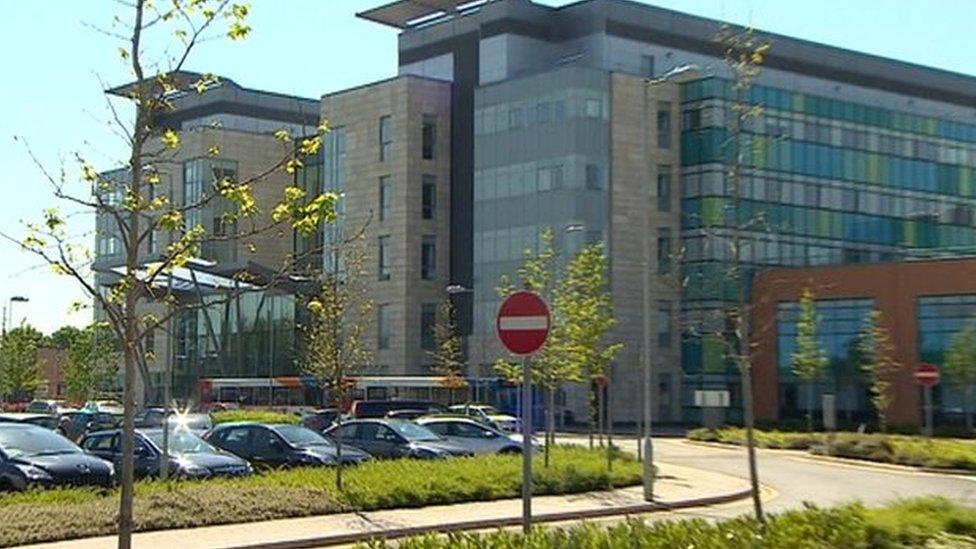Widow's A&E plea after husband dies in hospital corridor
- Published

Sharon Donnelly said she did not blame the "overworked and understaffed" NHS for her husband's death
A widow has pleaded for people to "stay away from A&E unless it is life-threatening" after her husband died in a hospital corridor.
John Donnelly, 51, was admitted to Peterborough City Hospital on 2 March and died the next day.
Huntingdon Coroner's Court heard a doctor was treating between 60 and 70 people and "had to prioritise".
Sharon Donnelly said staff were "overwhelmed". The coroner ruled Mr Donnelly died of natural causes.
His inquest heard the hospital was on "black alert" and some staff were unable to get to work due to the snowy conditions.

She described her husband of 22 years as "my world", whose support through many illnesses had "got her through hell and back"
Emergency medicine consultant Dhakshinamoorthy Vijayasankar said he was treating between 60 to 70 patients and "had to prioritise", the inquest was told.
Mrs Donnelly, from Peterborough, said she did not blame the NHS, as it was "overwhelmed and understaffed" that night.
She said: "My husband stood no chance in A&E that night - he was dumped in the corridor.
"If people that went there needlessly had stayed away, he may have stood a chance."

The inquest heard John Donnelly died from a "difficult to diagnose" aortic dissection
Mrs Donnelly paid tribute to her husband, who had looked after her through cancer, two separate mastectomies in three years and helped manage her type 1 diabetes.
She added "the only thing I can do positively for his memory" is ask the public "to stay away from A&E over Christmas - and forever - unless it's life-threatening".
The inquest heard Mr Donnelly had an aortic dissection, which is a tear in the artery carrying blood away from the heart.
An X-ray had been ordered and was delayed, but assistant coroner Rosamund Rhodes-Kemp said it was not possible to say whether this made a difference to the outcome.
She added aortic dissection was difficult to diagnose and Mr Donnelly had no previous history of the condition.